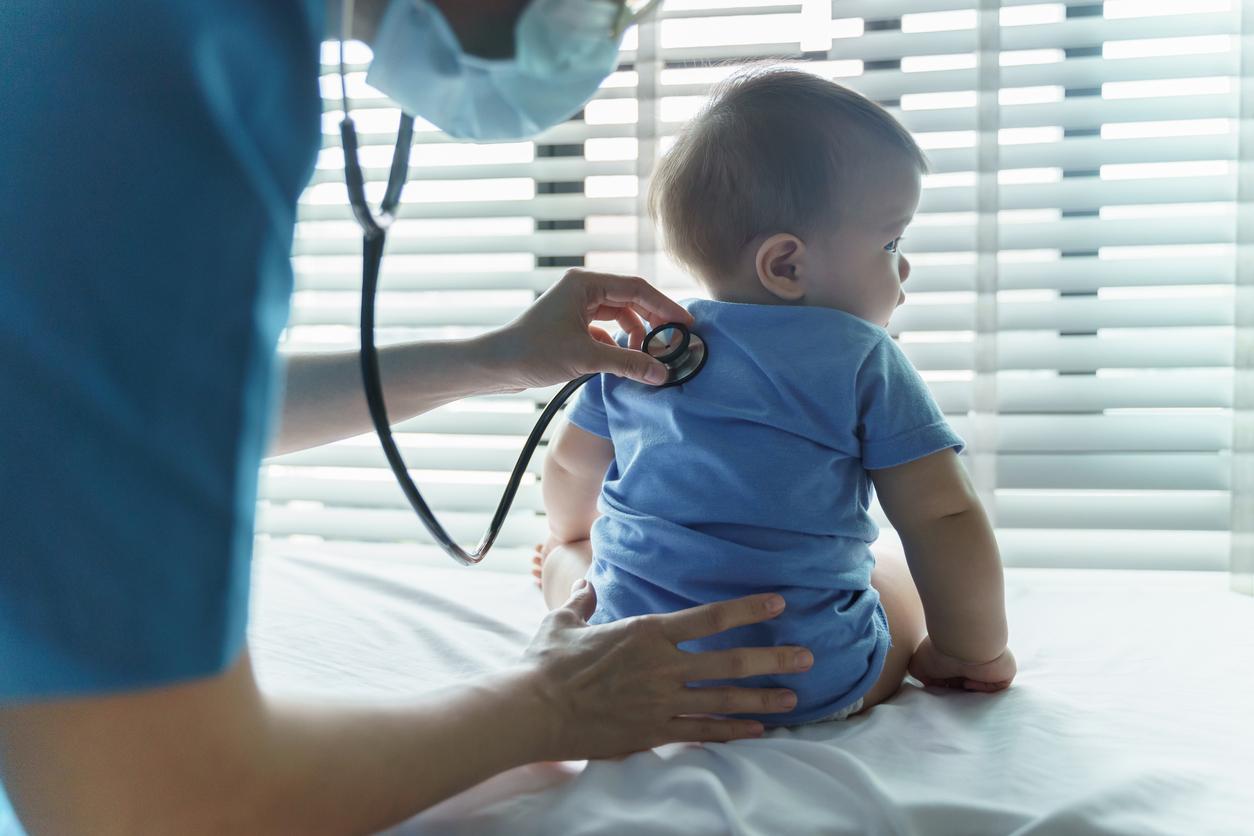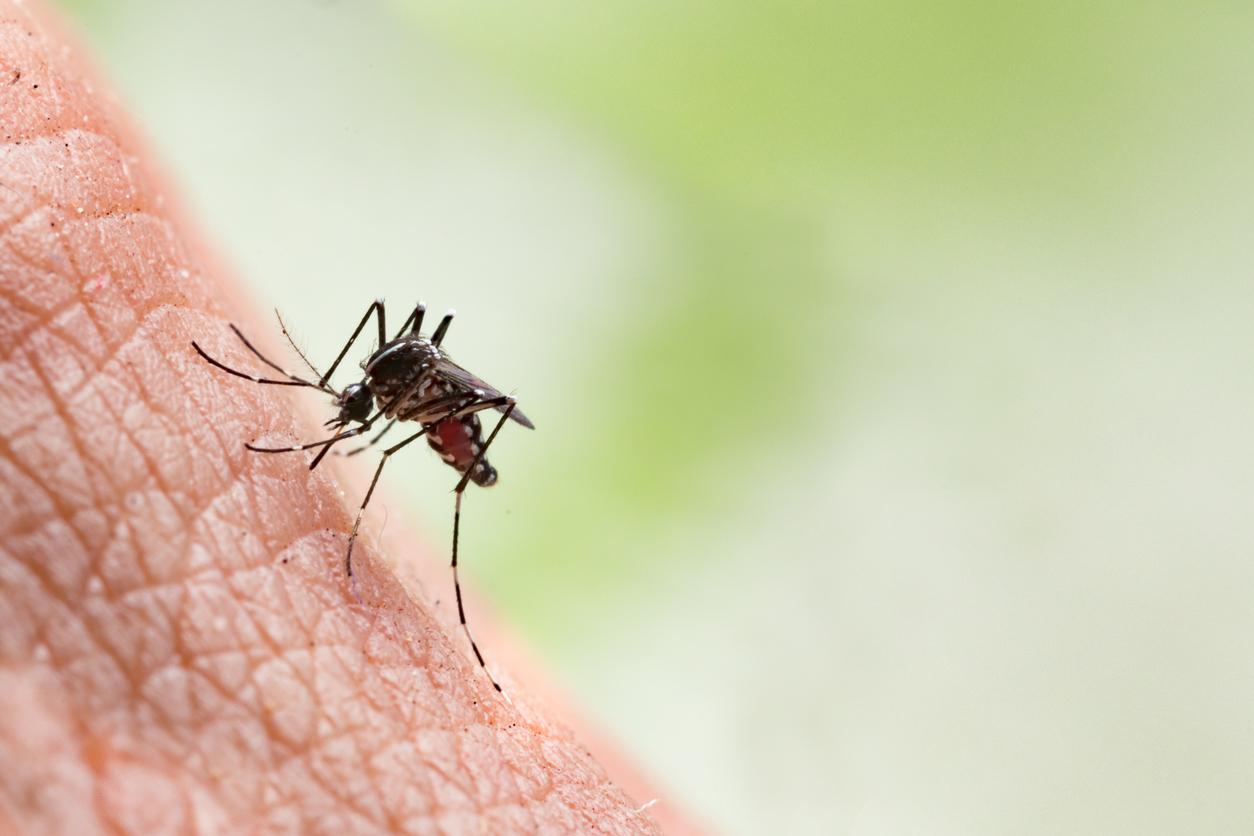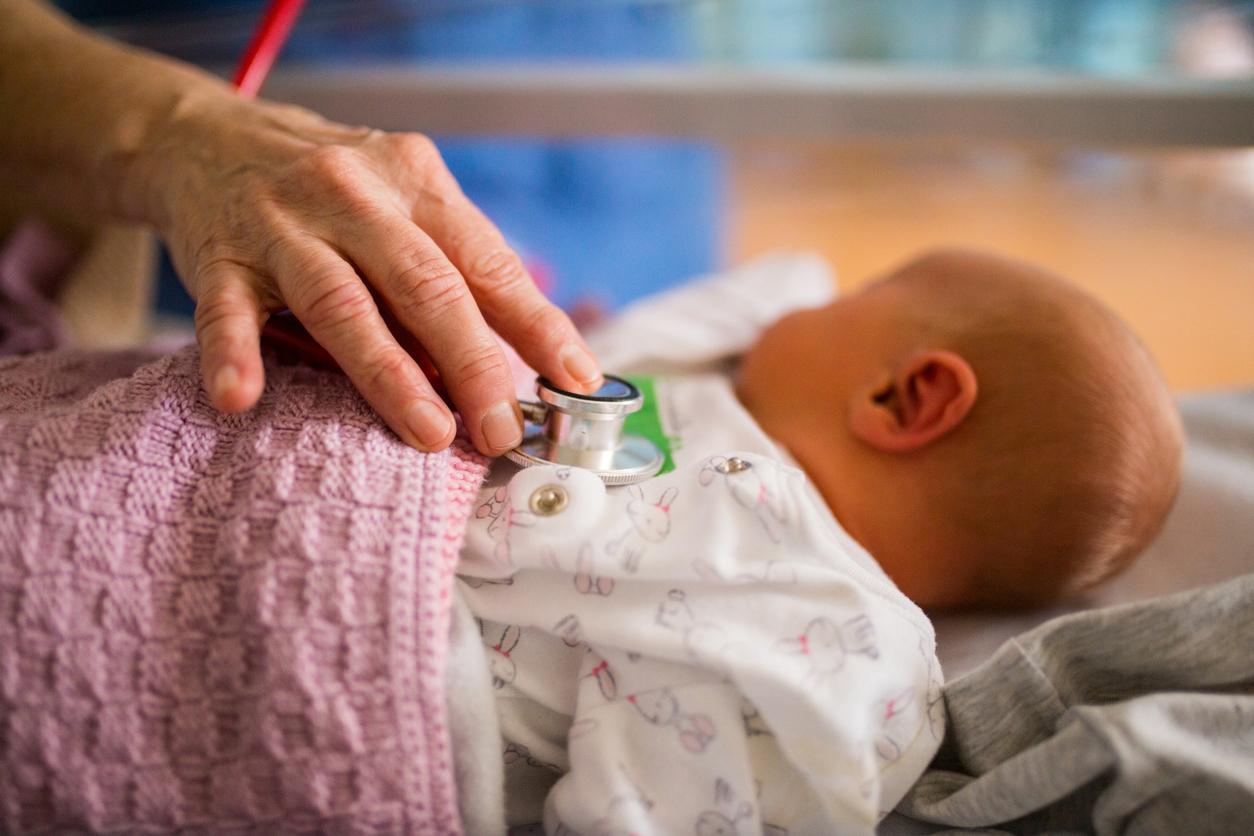In France, several regions are already threatened with an epidemic of bronchiolitis. But how do you know if your baby needs to be hospitalized? Explanations.

- Each year, 30% of children under the age of 2 are affected by bronchiolitis.
- This viral respiratory infection lasts an average of ten days.
- This seasonal epidemic generally begins in mid-October and ends at the end of winter with a peak during the month of December.
Hauts-de-France, Normandy, Ile-de-France, New Aquitaine and Occitanie. In these five French regions, cases of bronchiolitis in young children have increased abnormally in recent days. “Of the 1,491 children under 2 years old seen in the emergency room for bronchiolitis from September 26 to October 2, 2022, 1,352 (91%) were under 1 year old and 456 (31%) were hospitalized. Among the 456 children hospitalized , 427 (94%) were less than 1 year old”, can we read in a weekly newsletter published by Public Health France.
A hospital remedy for some babies suffering from bronchiolitis
As a reminder, bronchiolitis is a viral respiratory infection that affects the small bronchi. This disease, affecting infants under 2 years of age, is most often caused by the Respiratory Syncytial Virus (RSV). This contagious condition is manifested by an episode of difficulty breathing, the symptoms of which are coughing and rapid wheezing. “Bronchiolitis is most often a mild disease. However, very young children and more particularly infants under 2 months of age may present with a more serious form requiring hospitalization”, indicates theHealth Insurance.
Bronchiolitis: when should you go to the pediatric emergency room?
If her child is less than 3 months old and has symptoms of bronchiolitis with fever, her child should be taken to the emergency room. It is also recommended to contact the Samu without delay if his infant is “at risk”, either very premature, carrier of a pulmonary or neuromuscular disease, of a heart defect.
According to’Necker Hospital, repeated vomiting should also lead parents to take their child to the emergency room. Insufficient hydration and a deterioration in his general condition (significant fatigue, malaise, restlessness, etc.) may lead to calling for help.
Other cases that may lead to hospitalization: “he is having more and more trouble breathing. His breathing is rapid and shorter or irregular and slow, he has pauses in breathing, his nostrils are throbbing, the spaces between his ribs and above his collarbones are narrowing. dig”, details health insurance.

















